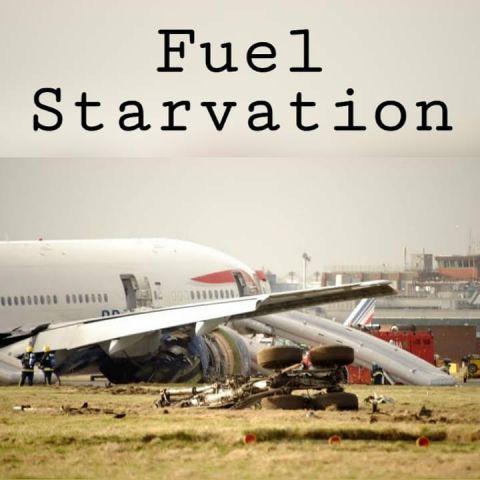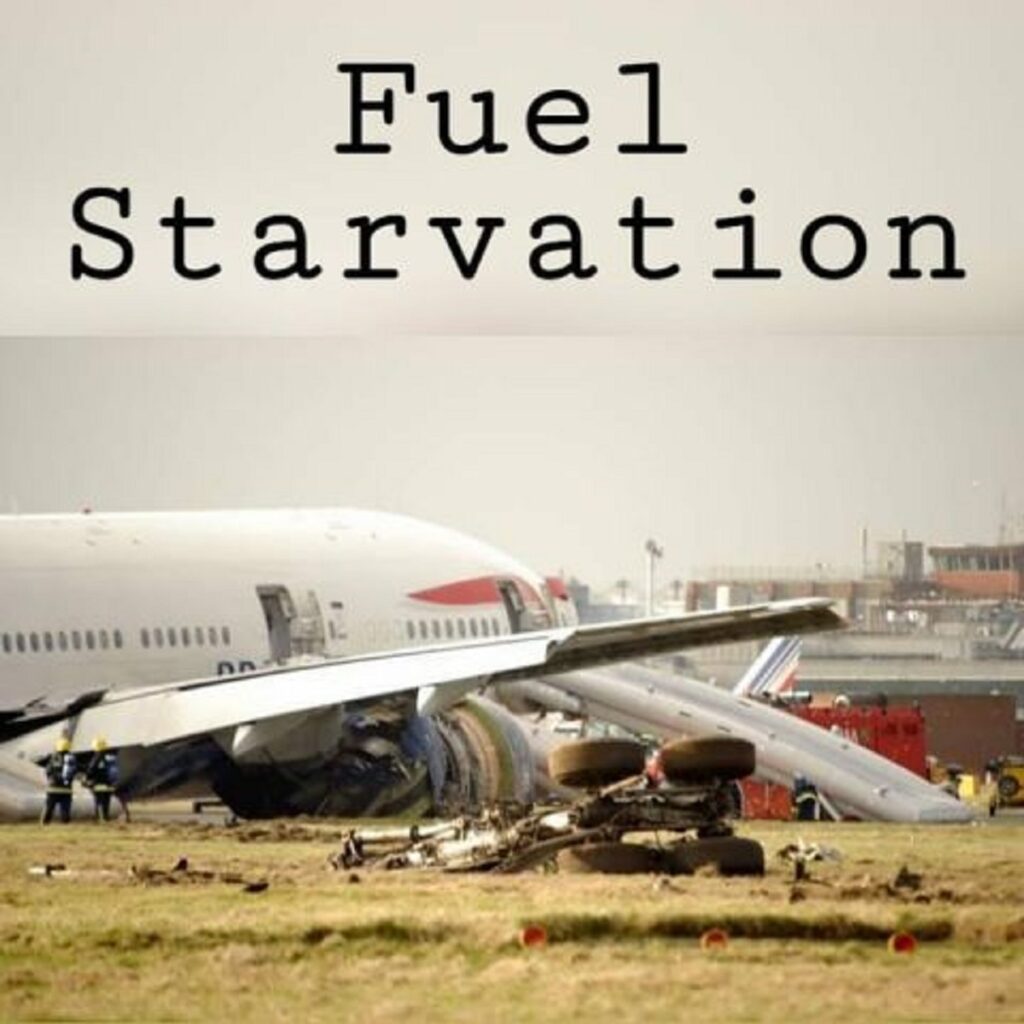
#Fuel Starvation is the state in which the fuel supply to the engine is interrupted, although there is adequate fuel on board the aircraft. #Fuel starvation and fuel exhaustion share the same possible outcomes:
•Engine failure
•Forced landing
•Controlled Flight Into Terrain (CFIT)
#The difference is that in the exhaustion case there is no fuel remaining on board (for whatever reason) while with starvation there is (sometimes enough) fuel but for some reason it cannot reach the engine. It is therefore possible in some cases to re-establish the flow of fuel and to regain engine power. #There are three major causal factors for fuel starvation occurrences: #Pilot factors. These are the most common cause for fuel-related occurrences. #Fuel Mismanagement. This occurs when the pilot forgets to switch fuel tanks when necessary, or switches to the wrong fuel tank, or just doesn’t monitor the fuel burn during a flight. Much of the time, the problem stems from a lack of understanding of the fuel system itself.
#Lack of familiarity with the aircraft, or lack of experience on the particular aircraft type.
#Distractions. There have been aircraft accidents in the past in which the pilots allowed a fuel starvation event to occur while preoccupied with something else, like fixing a landing gear problem or becoming disoriented.
#Mechanical Problem or Failure. Very rarely, there is actually a fuel leak or a problem with the fuel system that can cause fuel starvation. In these cases, early recognition is key to dealing with the problem.
#Component failure (most frequently a problem with the fuel lines, fuel gauges, filter or carburettor).
#Malfunctioning fuel system (most frequently caused by a vapour block or a faulty fuel pump).
#Design-associated factors (such as owner’s manual details, fuel system and engine control design) when combined with pilot factors (e.g. lack of familiarity with the aircraft) may sometimes lead to fuel-related events.
Author – Mohamed Freihat
(C130/L100 , A&C approved consultant)






